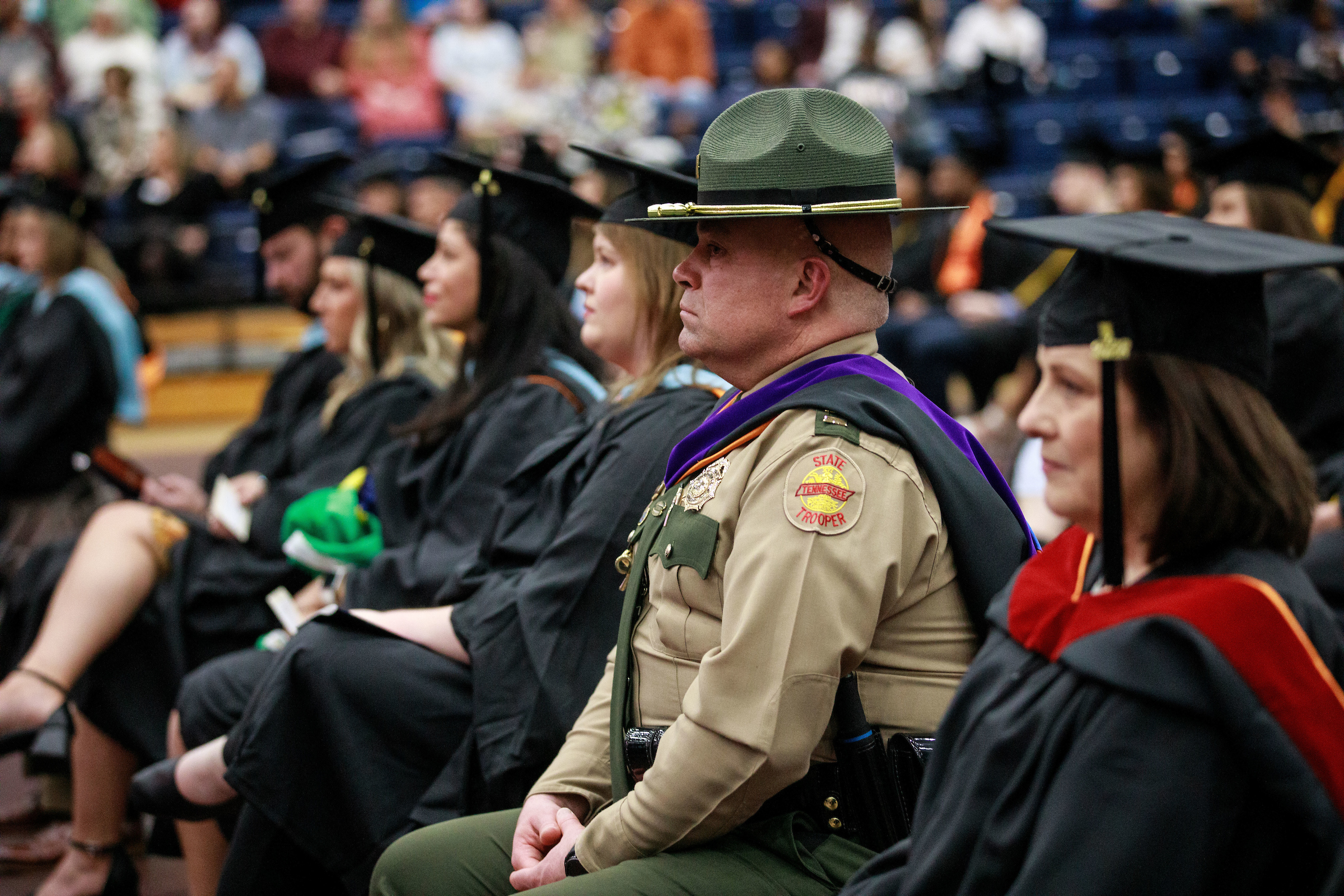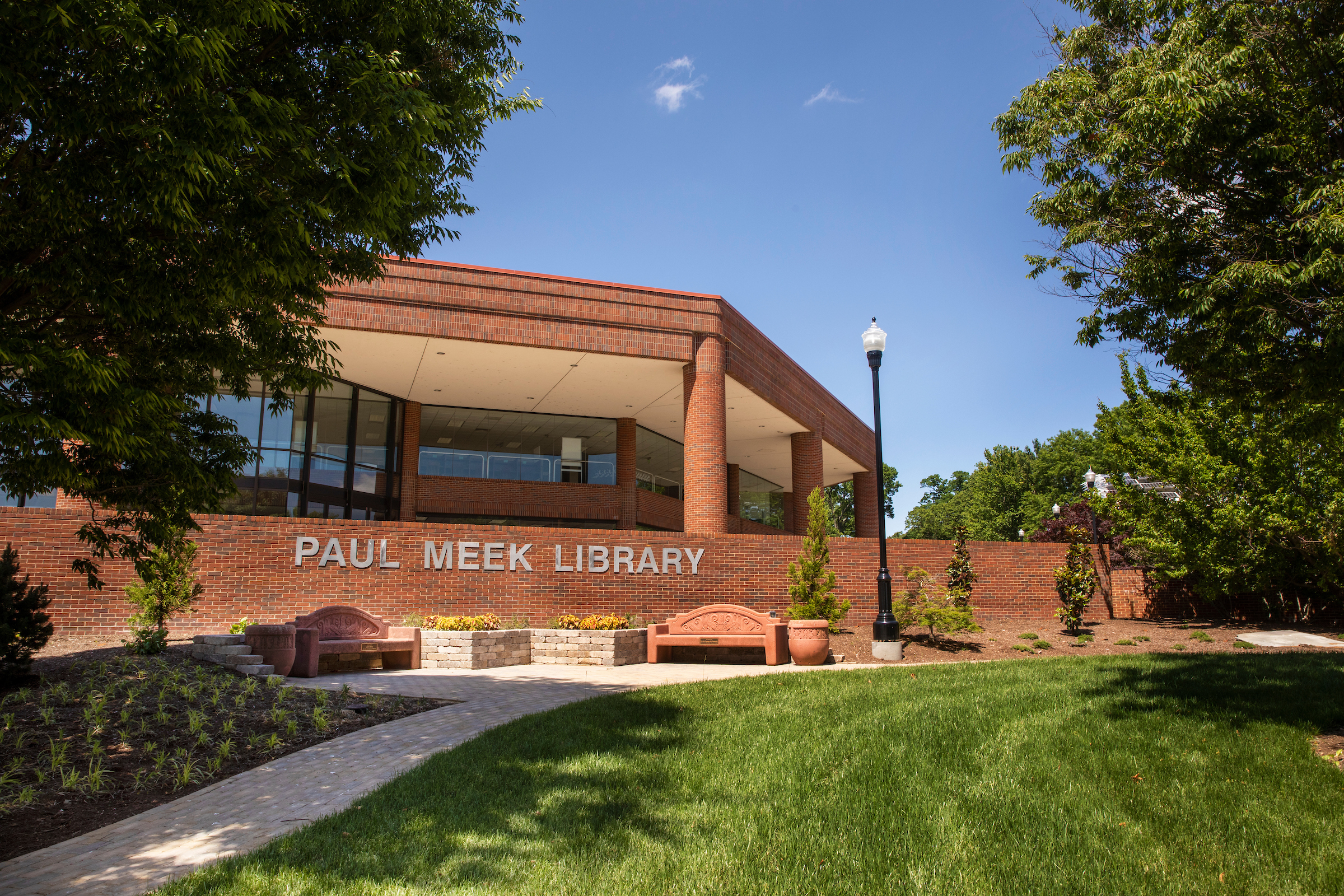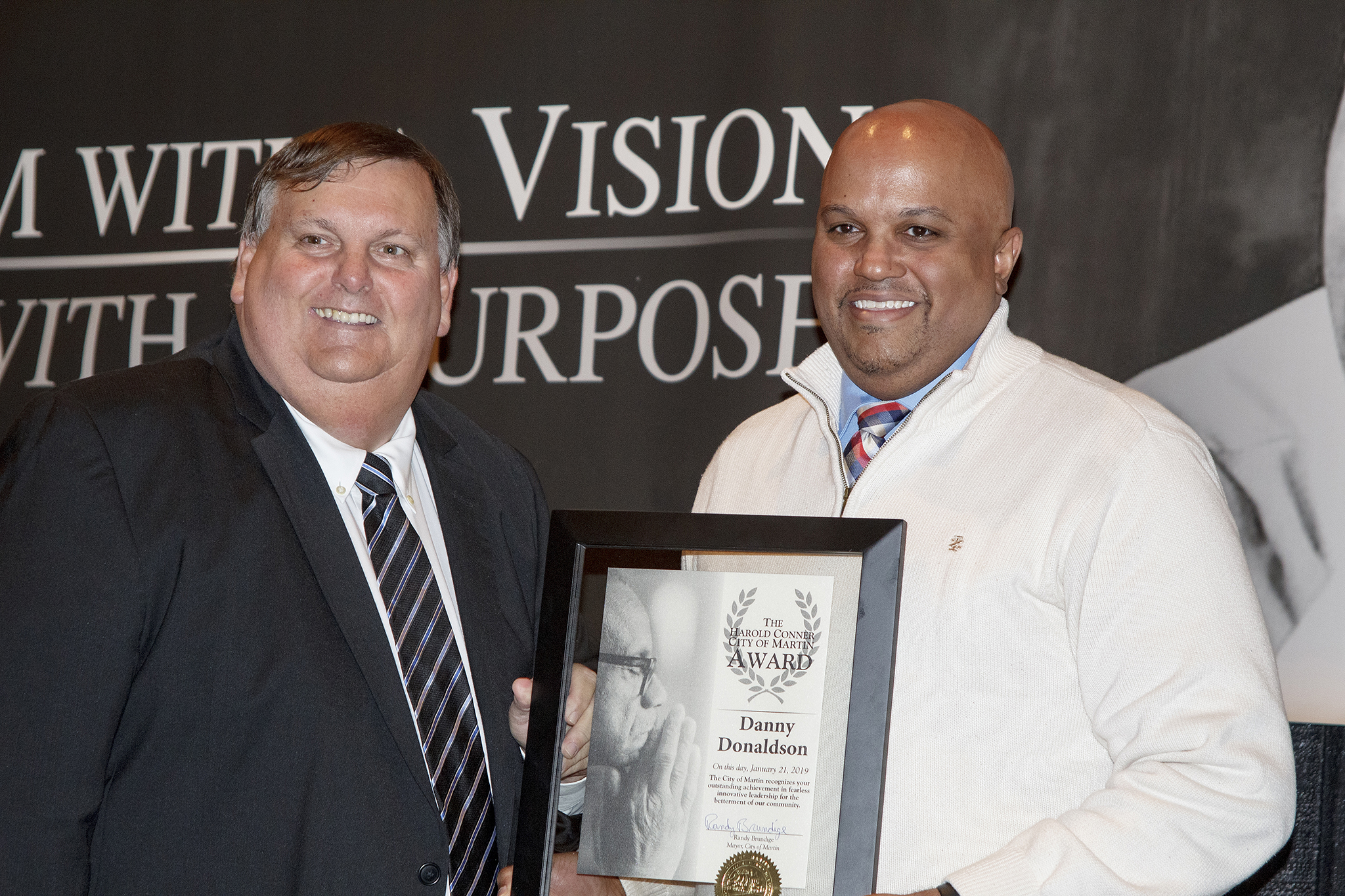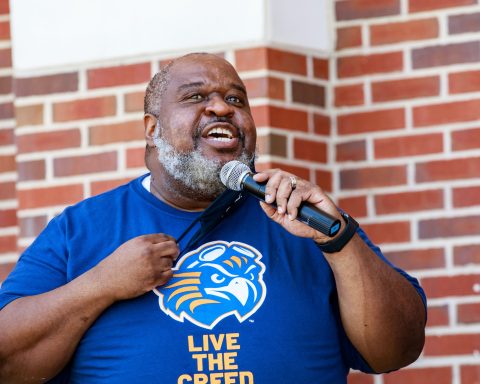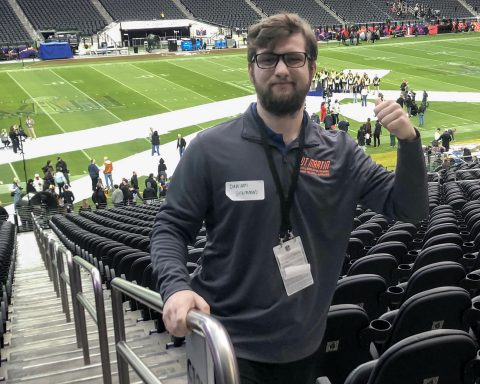The 2022-23 academic year has been a monumental one for the University of Tennessee at Martin’s Criminal Justice Program. Not only is the program celebrating its 50th anniversary as part of the College of Education, Health and Behavioral Sciences, the Master of Science in Criminal Justice program also had its first graduate cross the commencement stage Dec. 10 in the Kathleen and Tom Elam Center. Cpt. Wesley Stafford, director of training for the Tennessee Highway Patrol, has added a UT Martin degree to his impressive list of credentials and degrees.
Stafford began his law enforcement career as a reserve deputy at the Cheatham County Sheriff’s Department in 1996. After nearly two years in that role, he knew he wanted to pursue it as a full-time profession. “I don’t mean to sound corny, but law enforcement – just the whole idea of protecting and serving – just really felt like a calling,” he said.
He accepted a full-time position with the Cheatham County Sheriff’s Department just three weeks before graduating from basic police recruit school at Walters State Community College in East Tennessee. He held numerous positions while at the sheriff’s department and credits his time there for preparing him for his future law enforcement career. “It was a great place to get experience and to learn the ropes,” Stafford said about his time at the department. “I learned how to communicate with people and understand their traumas and successes.”
In 2005, he became a road trooper in the Nashville district with the Tennessee Highway Patrol. With this new job came new responsibility, and Stafford eventually transitioned into the role of teacher. He became a member of the Tennessee Highway Patrol Training Division because of a desire to help other law enforcement officers better themselves. “As I was maturing into a young adult, there was a time when I thought maybe I wanted to teach,” he recalled. This opportunity allowed him to continue doing the job he loved but also educate future generations of troopers. While in his role as an instructor, he graduated from the Northwestern University School of Police Staff and Command and went on to earn his bachelor’s degree from Bethel University.
By taking on this new role, it was evident that constantly pursuing an education was important to Stafford. The chance to return to school for his master’s degree presented itself when UT Martin added a new Master of Science in Criminal Justice in spring 2022.
While attending the FBI National Academy in Quantico, Virginia, Stafford started earning credit hours toward his master’s degree through the University of Virginia. It was through this opportunity that he saw the benefits UT Martin had to offer. “I was so close to completing my master’s and UT Martin was so flexible to recognize my previous education and training that it just made sense to finish there,” said Stafford.
He did not pursue his master’s with the intent or expectation of furthering his career, but he did it for his family. “I did it to show my children and grandchildren that you never stop learning,” he said.
“As I look toward the end of my career in law enforcement, I wonder what life looks like afterwards. Maybe, along with my other credentials, this (his master’s degree) will make me more marketable in the private sector,” Stafford said. “But at this point, I’ve got it, and nobody can take that away. So, I am proud to have completed it.”
For 50 years, the UT Martin Criminal Justice Program has produced police officers, state troopers, forensic scientists, judges, lawyers and many other law enforcement specialists like Stafford. The program is built on four pillars: law and law enforcement, courts, theory, and research.
In addition to academic courses tailored for the classroom, the Criminal Justice Program offers hands-on learning to students to better prepare them for the real world. Through internships and summer programs, such as the National Collegiate Forensics Academy in Oak Ridge, the faculty are dedicated to preparing students for their next steps.

Dr. Brian Donavant, UT Martin professor of criminal justice, has been with the program since 2006 and been an advocate for maintaining success within the department. “The biggest thing I can say about our program, and I think this really says it all, is that everything we do as a university should be about our students,” said Donavant. “We are truly a program that is all about our students and giving our students what they need to be successful when they leave here.”
As the program heads into its 51st year, Donavant hopes to see the undergraduate and master’s degrees grow. “They say there’s an art to being small, and as a regional public university I think we’ve found our niche in that,” he said. “We don’t need to be small in our thinking, but we need to stay true to the applied approach that gives folks real hands-on useful tools for when they are out there working to serve the public.”
###

